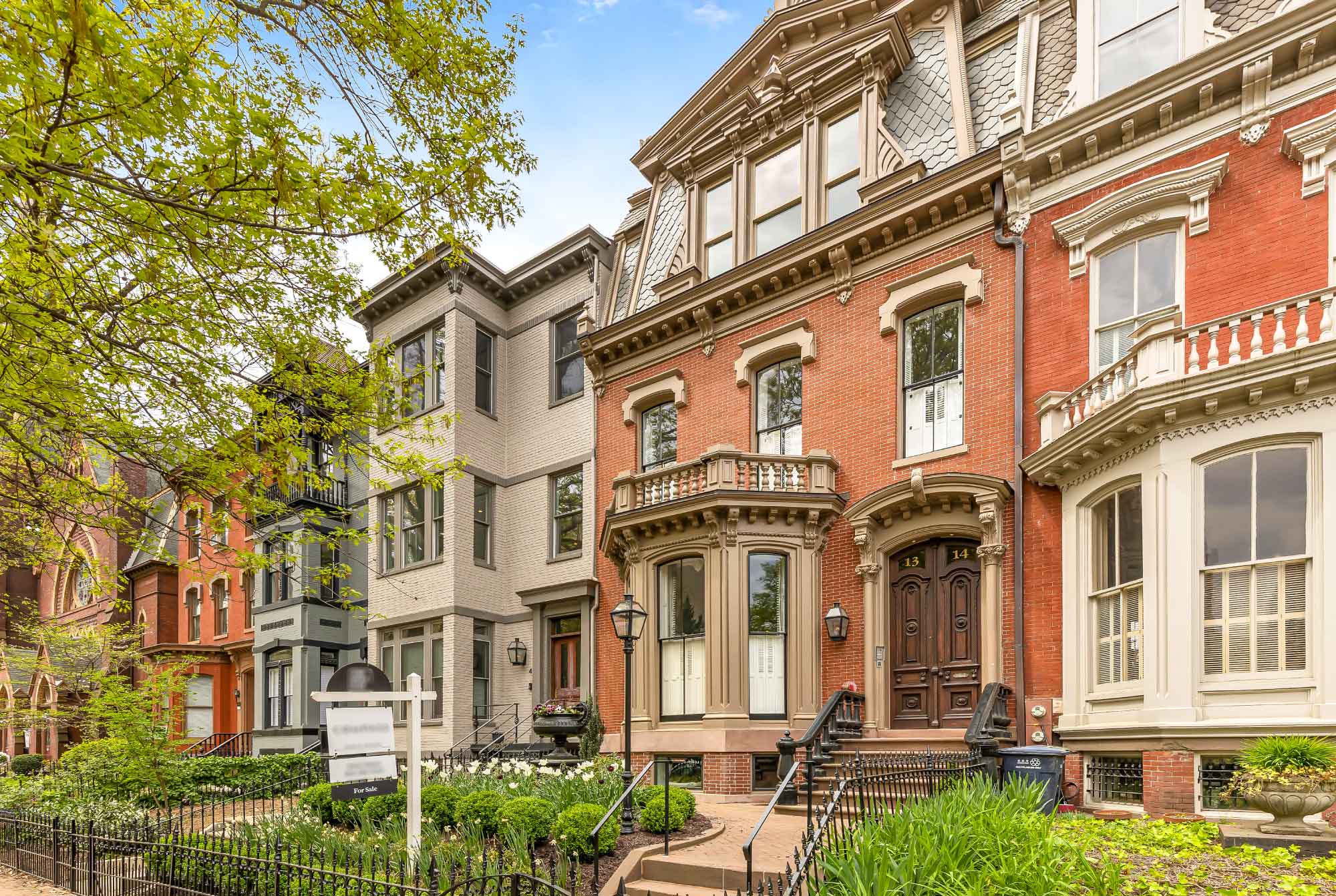Existing Home Vs. New Build: Which is Right For You?
Thinking about buying sometime this year? If a new home is on your mind, chances are, you’re considering every available option that meets your needs — from historic manors to contemporary havens, and everything in between. But home style aside, how do you settle the age-old debate between bidding on an existing property or building one from scratch? In this article, we’ll break down the pros and cons of each path, so you can embark on your homebuying journey with clarity and confidence.
Searching for more home buyer resources? We’ve got plenty! Read these blogs next.
- Signs The Market Is Good For Buyers
- Best DC Suburbs For Families
- Top Mortgage Mistakes (And How To Avoid Them)
New Construction
Pros:
Modern Amenities & Features: Newly constructed homes typically come equipped with the latest technologies, energy-efficient appliances, and contemporary design elements — resulting in lower utility costs and a more comfortable living environment for all.
Customization Options: Customarily, buyers opting for a newly-built home have the opportunity to personalize certain aspects of the property, whether it’s selecting finishes, picking paint colors, or designing floor plans. This allows for a greater level of customization to suit individual tastes and preferences.
Energy Efficiency: New homes are typically built with the latest energy-efficient materials and technologies, such as advanced insulation, high-efficiency HVAC systems, and energy-efficient windows, attributes that can lead to lower utility bills and a reduced environmental impact, too.
Warranty Protection: Many newly constructed homes come with builder warranties, offering protection against defects in construction or materials for a specified period of time. This type of protection can provide peace of mind for homeowners, since they’ll know they have recourse if any issues ever arise.
Low Maintenance: If history is any indication, new homes require less immediate maintenance compared to older properties. Fittingly, with new construction, major systems and components are brand new, and therefore less likely to require repairs or replacements in the near term.
Cons:
Potentially Higher Costs: Newly constructed homes commonly come with a higher price tag compared to existing homes, even ones in the same area. The cost of things like new construction materials, labor, and land may contribute in part to this higher initial investment.
Limited Established Landscaping: New construction is usually synonymous with a lack of mature trees, shrubs, and landscaping. Wondering why? It takes years for the surrounding greenery to grow in order to provide the same level of aesthetic appeal and privacy as what you’ll find in more established neighborhoods.
Possibly Longer Commute: Although this is no hard and fast rule, new construction of detached single-family homes does tend to happen outside urban areas. In the suburbs, bare land is more plentiful, but commutes to jobs, grocery stores, and recreational activities may take longer than desired.
Time Delays: Due to delays in construction schedules that can occur because of factors like weather, material shortages, or labor issues, buyers may experience unexpected (and unwanted) delays in the delivery of their new home.
Getting ready to buy a home? Check out these other blogs for more advice.
- How Many Homes Should I Tour Before Submitting an Offer?
- How to Buy a Home with No Money Down
- Reasons Why Working with a Realtor® is Worth Every Penny
Existing Home
Pros:
Established Neighborhoods: Existing homes are routinely located in established neighborhoods with mature landscaping, schools, parks, and amenities, which contributes to a sense of community and provides immediate access to essential services.
Quicker Occupancy: Stressing over time constraints? Good news on that front: Since resale homes are already built, buyers can move in more quickly instead of waiting for their new home to be constructed from the ground up.
More Negotiating Power: Traditionally, sellers of existing homes are known to be more flexible on pricing, allowing for negotiation and room to potentially secure a better deal. Of course, the real estate market and local conditions can influence the seller’s willingness to negotiate, which is why we’re here to help you stay one step ahead!
Character & Charm: Older homes often spotlight unique architectural styles, historical elements, and character that can be hard for even the most talented new construction team to capture.
Proven Track Record: An existing home has a history that can be reviewed, including information about past maintenance, utility costs, and any known issues – information that can be critical in making an informed decision about your future.
Established Infrastructure: Resale homes are already connected to municipal services, such as water, sewage, and electricity. This can save buyers the time and hassle associated when it comes to obtaining permits for such services.
Lower Overall Costs: While the purchase price of existing homes can vary, in many cases, you’ll find them to be more affordable than newly constructed homes. Additionally, existing homes may come with features like stainless appliances, window coverings, and other items that might be considered extras in new construction.
Cons:
Maintenance & Repair Costs: Compared to their newly constructed counterparts, resale homes will presumably require more maintenance and repairs. You could find that the plumbing, electrical, and roofing systems in particular need upgrading or even replacement, adding to your ultimate costs.
Outdated Features: Existing homes are more likely to have outdated fixtures, appliances, or design elements that don’t align with modern preferences. And while upgrading or renovating these features is always an option, that can be time-consuming and costly — especially on top of all that you’re already spending on your new home.
Potential For Hidden Issues: Even with a thorough inspection, existing homes can have hidden issues such as structural problems, mold, or pests that may not be readily apparent.
Restrictive Layouts: In some cases, older homes might feature layouts that don’t reflect contemporary preferences for open floor plans or larger, more dynamic spaces.
Shorter Lifespan: Existing homes, especially those that are several decades old, are likely to have shorter remaining lifespans for major components such as the roof, HVAC systems, and appliances — making more frequent replacements not just ideal, but necessary.
Not sure which type of home is right for you? Our team can help you find a great fit! Give us a call at 202.280.2060 or email us directly at jsmira@jennsmira.com.
Put Us To Work For You
Book a consultation with our team today.
